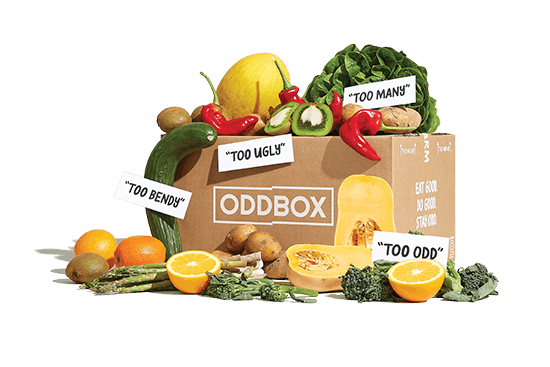The good glossary.
Bamboozled by green and ethical food labels? You’re not alone. And it’s no surprise with new accreditations and stamps popping up on packaging all the time.
To help you figure out what each one is really saying, we’ve broken things down into straightforward terms, with lots of extra reading if you’re interested. No greenwashing here, thanks – let’s get to the facts.
Fairtrade
What it means: Fairtrade sets social, economic and environmental standards for the companies and farmers involved in the supply chain. To use a Fairtrade label, both the company and producers have to meet these standards during regular inspections.
As part of the agreement, companies have to pay their producers a Fairtrade Minimum Price to cover the cost of production, along with a Fairtrade Premium which is paid to the growers’ cooperative. This premium can be invested in business or community projects.
When Fairtrade launched in 1992 it was truly pioneering. It shone a spotlight on the treatment of producers and growers throughout the supply chain, and lots of big improvements have been made thanks to their work. Critics, though, have argued that the poorest farmers don’t actually benefit from the scheme – you can read more on the debate around Fairtrade here.
Where you’ll see it: The official website says there are over 6,000 Fairtrade-labelled products, ‘from coffee and tea to flowers and gold’. You can buy Fairtrade tomatoes, green beans, bananas, oranges and grapes in UK supermarkets.
Organic
What it means: The Department for Agriculture and Rural Affairs (DEFRA) states that:
‘Organic food is the product of a farming system which avoids the use of man-made fertilisers, pesticides, growth regulators and livestock feed additives.’
To label food as ‘organic’, growers and producers have to be certified by an approved UK organic control body – in fact, if you call a food product ‘organic’ before it has been inspected and certified, you’re breaking the law.
Where you’ll see it: The latest figures show that in 2022, 509 thousand hectares were farmed organically in the UK. It’s worth remembering that some small, local producers can’t afford the cost of organic certification – so you might find food at local farmers’ markets which has actually been grown organically, but just hasn’t been certified.
Red Tractor
What it means: This one’s about where food is produced. The Red Tractor is a sign that something was produced in the UK, and meets rigorous British standards of food safety, animal welfare and environmental protection.
Their website says: ‘We are the flagship logo of British food and farming, providing assurance at every stage of the production process, from farm to pack.’
Red Tractor isn’t without debate, though – among other things, critics say the inspections aren’t frequent enough to offer guarantees of production standards. While others have questioned their standards of animal welfare.
Where you’ll see it: The Red Tractor mark can only be used on food and drink that has been produced, packed, stored and transported in the UK.
Rainforest Alliance
What it means: For a company to use the Rainforest Alliance frog stamp, growers have to meet the Rainforest Alliance Sustainable Agriculture Standard. This covers things like conserving local wildlife and water resources, minimising soil erosion, treating workers fairly and reforesting where possible.
In their words: “When you see our frog, you can feel confident that these goods support a better world. And you don’t have to take our word for it: our robust verification system includes checks by independent auditors to be sure the farms that grow these crops, and the companies that source them, are meeting our strict certification requirements—which are all expertly designed to improve farmer incomes and well-being, as well as to regenerate the land.”
One thing to watch out for – to carry the Rainforest Alliance label, products need only contain 30 percent of Rainforest Alliance certified ingredients. So the label could be considered misleading for certain products.
Where you’ll see it: Like Fairtrade, the Rainforest Alliance frog can be on anything from coffee to chocolate and fruit and veg.
LEAF
What it means: In their words, LEAF is about ‘promoting and supporting more sustainable farming to create a resilient food and farming system for future generations’.
The LEAF Marque is a global assurance system recognising sustainably farmed products – to be certified, growers have to follow the principles of Integrated Farm Management. This includes measures around soil and water quality; the resilience of cropping systems; energy efficiency; management of waste and by-products; community engagement; biodiversity and the conservation of natural habitats.
Where you’ll see it: According to their website, 43% of UK grown fruit and vegetables are grown by LEAF Marque-certified businesses.
Soil Association
What it means: The Soil Association Certification is the UK’s largest and oldest certification body. It certifies over 70% of organic food and drink on sale in the UK.
In their words: ‘Our symbol represents our aims and embodies our organic principles of ecology, fairness, care and health. In the UK we certify over 70% of organic food and drink sold and our organic symbol is the most recognised and trusted.’
Where you’ll see it: It’s not easy to gain Soil Association Certification – so if you spot it on food, you can feel reassured that it’s been independently inspected and regulated. Having said that, many smaller producers can’t afford the certification process, so it’s not the be all and end all.
So there we have it – anything there you didn’t already know? Feel free to get in touch if you have any questions, and dive into each certification below, where we’ve listed our sources. If you’d like to know more about the standards we have in place for the growers we work with, check out our latest Do Good report.

